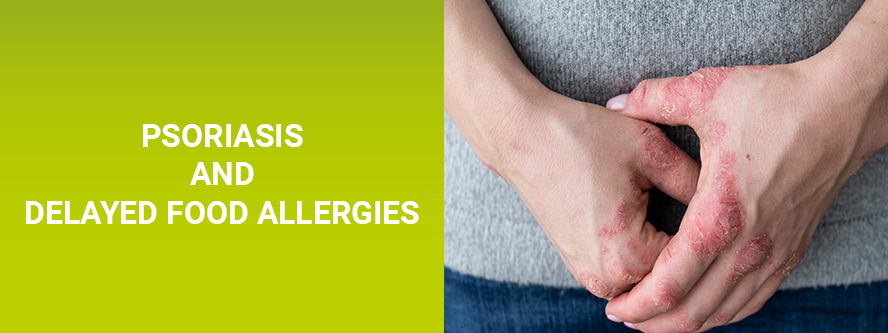Psoriasis – an inflammatory skin disease
For many patients with psoriasis, relapses are more frequent in winter. The reason for this, in addition to the lack of sunlight, is the alternation of cold, wet weather outside and dry, heated air indoors. All this is a further burden for the already damaged skin. Psoriasis is a skin disease that causes raised, red, scaly patches to appear on the skin. The skin cells of people with psoriasis grow at an abnormally fast rate, which causes the build-up of psoriatic skin damage. At the same time, the immune system is activated in an inappropriate way. Usually, the affected skin areas are outside of the elbows, knees or scalp, but can also appear on other locations – such as the eyelids, ears, mouth and lips, hands, feet and nails. The immune system and genetics play major roles in its development, and usually there is a trigger causing psoriasis to flare-up. However, scientists still do not know what exactly causes psoriasis. According to current studies, psoriasis affects approximately 2% of the world’s population, and more than 8 million Americans suffer from this disease. Psoriasis must be treated by unravelling the underlying causes, considering also that this disease is frequently associated with other serious health conditions, such as diabetes, heart disease and depression.
Nutrition plays an important role in psoriasis
There are certain skin disorders where food-related aspects are involved in the origin of the disease, such as psoriasis, acne, dermatitis or urticaria. Health experts and researchers agree that several nutritional strategies for the management of psoriasis are promising (such as fasting, vegetarian diet or diets rich in omega-3 fatty acids from fish oil). A healthy lifestyle combined with weight loss is beneficial for patients with moderate to severe disease, and a close cooperation between nutritionists and dermatologists is necessary for the management of psoriasis. In addition, many health care providers agree, that a diet based on a test for delayed food allergies – such as ImuPro – is helpful for the treatment of patients suffering from psoriasis.
Why ImuPro for the management of psoriasis?
IgG is a defence protein generated by our immune system, that can recognize a foreign substance (also called antigen). This antigen is considered by the immune system as an invader, having the potential to harm the body. Following, the body starts an inflammatory reaction designed to destroy the antigen. Food or food components (proteins or parts of proteins) might also be considered as invaders by the immune system that generates food specific IgG antibodies. They are combined with food particles, and induce then an inflammatory response. Just in the same way as a scratch or wound on your skin gets red and inflamed, while the immune system´s effort is to get rid of the invading bacteria or dirt in the wound. But a food-mediated immune reaction remains unseen, it occurs inside your body. Continuous and repeated consumption of the same foods that trigger such IgG-mediated hypersensitivity reactions may promote and maintain such silent, overlooked and painless chronic inflammations. IgG-mediated food hypersensitivity can therefore be a trigger factor for the development of diseases where inflammatory pathways are involved, such as psoriasis.
2/3 of patients with psoriasis noted an improvement
ImuPro undertook a clinical observation study, to collect evidence on the efficacy of ImuPro in patients with very different conditions that may indicate food intolerance, including, psoriasis, neurodermatitis, headaches/migraines, overweight/obesity, fatigue, rheumatic diseases or gastroenterological complaints. A total of 938 patients participated in this trial and 2/3 of the patients with psoriasis noted an improvement of their disease symptoms when they avoided IgG-positive foods for a period of 8 weeks. Other researchers discovered, that some psoriasis patients have increased IgG antibodies against gluten, the wheat protein. When these patients followed a gluten-free diet, a very significant improvement of their symptoms was observed.
For these reasons, it can be expected that a test for the detection of IgG-mediated food hypersensitivity, followed by the ImuPro change in diet concept, could be helpful for the management of psoriasis.


